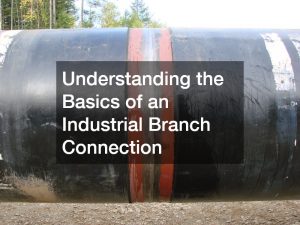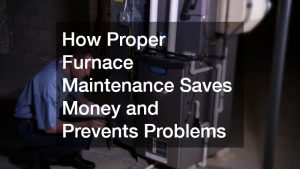Buying a home requires a considerable investment. After all, you’re buying a house, which can cost hundreds of thousands of dollars, and will likely be one of the most significant investments you’ll ever make. So it’s only crucial that you try to get it right.
These days, more people making home purchases are paying with cash. However, most buyers are still using mortgage financing to purchase their homes. Some honestly can’t afford to make a cash payment in full, while others leverage mortgage to get a better deal on their home or tap into the equity later on.
But whatever your reasons for taking out a mortgage, there are mistakes you should avoid if you want to get the most out of your purchase. Here are five of the biggest mortgage mistakes homebuyers make when making a home purchase:
Not Understanding Mortgage Types
Many types of mortgages are available to homebuyers, each with its own set of terms, conditions, and interest rates. Before choosing one for your home purchase, understand the difference between each type of mortgage. Doing so will help ensure you get the best deal possible and avoid unwanted surprises later on.
For instance, fixed-rate mortgages offer predictable monthly payments for the duration of the loan, typically 15 or 30 years. However, the interest rate on your loan will be higher than other mortgage types. On the other hand, adjustable-rate mortgages (ARMs) have lower interest rates, but these can change over time, resulting in a higher or lower monthly payment down the road.
Suppose you are after more predictable mortgage fees and can afford a higher mortgage interest rate. In that case, you are better off choosing a fixed-rate mortgage. However, an ARM may make sense for you if you are okay with a little more risk and can afford a little bit of monthly uncertainty. It all boils down to your personal circumstances and what you are most comfortable with.
If, in case you believe an ARM is a better choice for you, your next move would be to find the right lender to do business with. It makes sense to find a lender that offers ARMs with low-interest rates, commits to responsible lending practices, and offers easy mortgage applications and quick closing times.
Not Understanding the Mortgage Process
The mortgage process can be confusing and complicated. Failure to understand it can lead to problems like not qualifying for a loan or getting stuck with an unfavorable interest rate.
Not understanding the mortgage process can also make it difficult to compare different offers from lenders. If you don’t know what you’re looking at, you could end up with a loan that’s not in your best interest.
Make sure you understand the ins and outs of the mortgage process before you apply for a loan. This includes how interest rates work, what kinds of fees you’ll be responsible for, and the different types of loans. The more you know about the process, the easier it will be to get the loan that’s right for you.
Thankfully, there are different resources where you can learn about the mortgage process. You can read articles like this one or online, talk to a loan officer, or even take a class. The more you know, the better equipped you’ll be to get the best loan possible.

Choosing the Wrong Lender
There are many different lenders out there, and each one offers various products, rates, and terms. Do your research and shop around before choosing a lender. Failure to do so could cost you a lot of money in the long run.
Some things to consider when choosing a lender include:
- interest rates they offer
- fees they charge
- types of products they offer
- their reputation and customer service record
Choosing the wrong lender can lead to all kinds of problems down the road. You could have a high interest rate, unfavorable terms, and poor customer service. Do your homework and make sure you choose a lender you can trust, or you could regret it later.
Not Getting Pre-Approved for a Mortgage
Understandably, you can’t wait to start shopping for houses. You may already know how much of a home you can afford. But failure to get a mortgage pre-approval can only lead to disappointments down the road.
One reason is that a pre-approval mortgage gives you a much better idea of how much house you can realistically afford. A lender will closely look at your finances, including your income, debts, and credit score, to estimate how much they’re willing to lend you. This number is usually quite different from the one you had in mind and is generally lower than what you might expect.
Getting a pre-approval also makes you look like a legit buyer from a seller’s perspective. It is not unusual that homeowners will receive many offers from different buyers. With a pre-approval, they will take your offer more seriously. They may even give you an advantage over buyers who haven’t been pre-approved.
Borrowing More Money Than You Need
After a mortgage approval, your lender will let you know the maximum loan amount they’re willing to give you. Taking out the full loan amount can be tempting, but this is usually not a good idea.
The main reason is that you’ll have to pay interest on the entire loan amount, even if you only use a portion of it. This can add up over time and cost you a lot of money in the long run. It’s much better to only borrow the amount you need and use any extra money for things like a down payment, home repairs, or furnishings.
Borrowing more than you actually need can also increase your monthly mortgage payments. This can make it challenging to keep up with your payments if your financial situation changes down the road. It’s always best to only borrow what you absolutely need and can afford to pay.
Getting a mortgage can be the answer to your dream of purchasing your own house. However, it is vital that you make the right decisions early on to avoid any problems down the road. Make it a point to understand the mortgage types and processes before applying. Don’t forget to do your research so you can choose the right lender, get pre-approved, and only borrow what you can afford. Taking these steps will help ensure you have a positive experience with your mortgage and avoid any stressful surprises.




